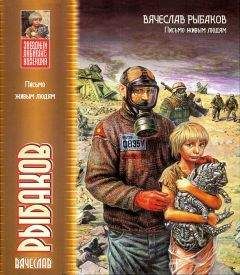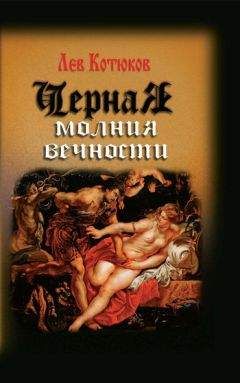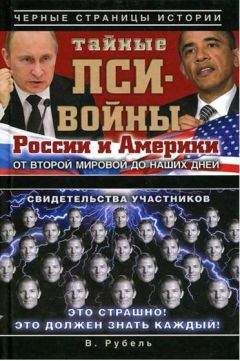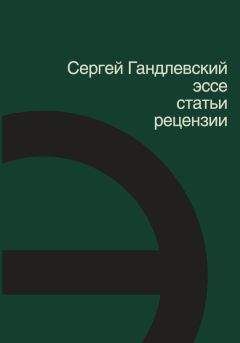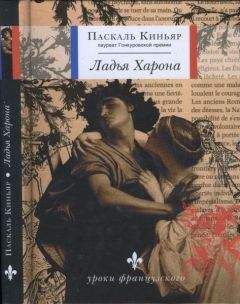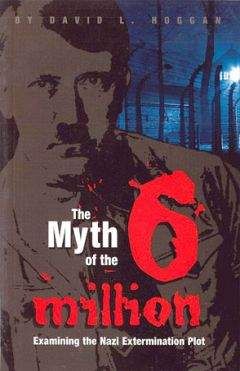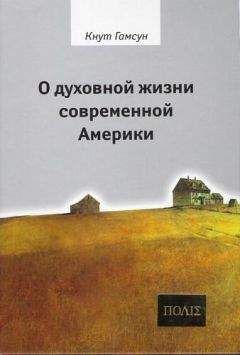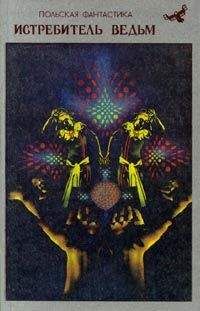Роллан Сейсенбаев - День, когда рухнул мир
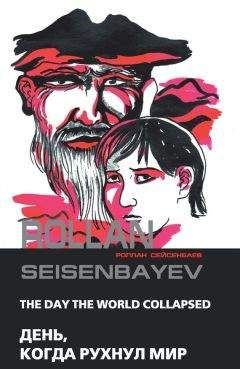
Все авторские права соблюдены. Напишите нам, если Вы не согласны.
Описание книги "День, когда рухнул мир"
Описание и краткое содержание "День, когда рухнул мир" читать бесплатно онлайн.
Роллан Сейсенбаев – признанный классик казахской литературы. Его романы, повести, рассказы издавались в самых престижных журналах и издательствах России, Англии, Америки, Германии, Италии, Венгрии, Польши, Японии и Кубы.
Роллан Сейсенбаев награжден «Золотым офицерским крестом» Польши, «Золотым Рыцарским Крестом» Венгрии, орденом «Дружбы» Кубы за заслуги перед литературой. Он является обладателем множества международных литературных премий.
Крупнейшие критики мира называют рассказы Роллана Сейсенбаева жемчужинами. Поистине Он уникальный Мастер слова.
Роллан Сейсенбаев стал своеобразным эталоном современной казахской интеллектуальной прозы.
After the explosion, we lived in the Genghiz Hills for another one and a half weeks. Here, on a high reach, we buried Kenje – the first innocent victim of the hydrogen bomb exploded on the proving ground near the town of Semipalatinsk.
Semipalatinsk! That dear, dusty, inconspicuous town; from that day on it became famous throughout the world!
They say that Kurchatov, immediately after the explosion, exclaimed, «This is monstrous! God willing, this will never be used against people. We mustn’t allow such a thing…»I was sitting on a warm boulder which had fallen from the hills during the explosion, intently gazing at the spot where Kenje had just been buried. It was far from the mound, but I could clearly see a light vapour rising from the little grave, like the soul, like the atomic mushroom cloud after the explosion. The soldiers had vanished just as suddenly as they had appeared. Only a medical vehicle remained, a few army doctors and a young nurse, Galya. There was little for her to do and she would frequently drop into my grandmother’s and quietly sit and have a chat about this and that. Sometimes, grandfather would participate in these conversations. Both he and grandmother knew Russian well – naturally, after all, during the years of the great famine they had found salvation in the town where they worked as unskilled labourers and in this way survived.
Grandfather recalled:
«The whole wretched steppe was covered in corpses. We rushed, although you could hardly call it that – it was more like crawling – towards the town accompanied by the howl of jackals and cries of cawing vultures. We had only one aim – to reach the town; once there, somehow things would come right in the end. Every one believed in this, as I did. Everyone believed in this but not everyone survived…»
The poisoned, terrible thirties – bitter like the smell of wormwood. Galya listened attentively. She would often flinch. She could not comprehend how, under socialism, there could be famine, humiliation, repressions, although her twenty-year-old mind understood that this terrible, deadly explosion was also a bad thing. She whispered this to grandmother and added, wide-eyed, that although she was not sure, of course, but had heard that the doctors were waiting for the arrival of nine people who had been specially left in the immediate vicinity of the area where the tests had been carried out, and who had stood throughout the whole test without protective cover. They would be put under observation for approximately ten days and then they would be sent to Semipalatinsk where they would be observed by «Moscow professors». Galya maintained that this was what they had been told by Major Zhavoronkov of the Medical Corps who headed this small group of medics. «Such observations are necessary for the future,» Zhavoronkov said. But Galya, after having listened to grandfather, no longer believed in the words pronounced by her commanding officer.
«…because even in the town, many became bloated from hunger,» continued grandfather. «My wife here,» he said pointing to grandmother, «she’s my second wife, you know; my first wife died; she could not bear the separation from her eldest son. When we arrived in the town, we left our son at the orphanage; this way we thought that at least he would not die of hunger. And the youngest, his father, and grandfather stroked my head, we kept with us. We thought we would be able to manage to feed one. Well, it’s a long story. But no matter how much you explain only someone who has himself suffered hunger can really understand. And so, my first wife pined for her first-born. She would frequently cry at night – we should bring our son home. She became thin, could not eat anything, not that there was anything to eat. She understood that if we were to bring him back, he would surely die, but her heart told her otherwise. She went to the orphanage, against my will, I won’t hide the fact. But they had all already been evacuated. They had moved them to some far-off place and no one knew exactly where. From that day on, she began to fade away before my very eyes. She died in forty-three. And she never found out where our first son was, and she didn’t see her second son return from the war – his father», grandfather clarified again and repeated, «No, she didn’t see him return. But I survived. Although I still do not know whether my eldest son is alive or whether he has laid his head to rest– somewhere. By the end of the war, I was quite alone. And then, well, I met my old lady… she’s a good woman.»
Grandmother was quiet. Grandfather fell silent. He stared somewhere into the distance, his eyes not seeing anything.
He told us this story with reservation and calm, a story which sounded even more terrible in the surrounding stillness.
«So my father had an older brother and I would have had an uncle,» I thought. A picture rose before my eyes; I saw myself crawling across the steppe followed by the howls of jackals and cries of vultures and stumbling upon corpses of the people who had died of hunger. Strange as it may seem, this vision frightened me more than either the test bomb or the ghost of the snow leopard. Perhaps only the death of Kenje seemed as frightening… I was seven years old.
It was then that for the first time I began to think about the number of deaths, pain, suffering, humiliation and insult which had befallen the people of Genghiztau.
A truck came down from the hills and the dzhigits who spilled out of it came-towards us. As it turned out these people were from our village and it was precisely they who had been caught «unawares» by the explosion. They gravely greeted the old men and when they found out about the death of Kenje, they sat by her fresh grave in silence, for a long time. The doctors wore them out with their treatment. Till late in the evening they examined them several times with special instruments, instructing them to relax, close their eyes; in short, – in the opinion on the dzhigits, they were being treated like children.
«That’s enough, how long can one wait?» protested the accountant Talgat. «We are hungry, since morning neither food nor drink has passed our lips.»
«Be patient. If necessary, we’ll take you to Moscow for observation,» Zhavoronkov, who had no sense of humour, gloomily announced.
«To Moscow then! That’s a good idea. I’ve long dreamt of staying in the capital for a while. You can send me there as soon as you like,» said Talgat, boastfully, wishing to anger the doctor.
The old men and women – spread out a large table-cloth for the funeral feast for Kenje. The Russians also joined us.
«She-was beautiful, wasn’t she, Rollan?» Galya asked me.
I nodded in reply, «Yes, she was the most beautiful of all.»
«Anti you loved her of course?» Galya said shrewdly.
For «the first time, the adults talked to-me „as an equal“ and I thought, „Perhaps, I’m already an adult too, since they treat me like one. Yes, an adult…“
„Yes, I loved her and I’ll never love anyone else…“
„All your life?“ said Galya in surprise.
„All my life!“ I said confidently.
„What, you won’t get married, then?“
„No, I won’t,“ I assured her angrily, cutting her short.
Galya was amazed and when she hugged me she whispered, „If only my young man loved me like that. I hope that all troubles will pass you by. Grow up quickly and be happy.“
The sky was full of stars, but the moon was hidden and the mountains were dark and gloomy. In the light from the camp-fires, people silently ate oatmeal porridge. Once again I remembered Kenje and again tears appeared in my eyes. It was only yesterday that we had talked and dreamed. The dreams were childish, unpretentious and fantastic. Kenje, the little Kenje, for her six years of age, expressed herself in mysterious riddles and what was amazing, her fantasies were always in bright colours. „It will be fine, the steppe will be fragrant,“ she would say. „Those crimson flowers always smell so sweet and the blue-blue sky will softly look down on us and the golden sun will shine brightly and you will be able to gaze at that golden mirror for as long as you like. My one-and-only golden, wonderful sun!“
She loved everything and everyone but I was the only one who had loved her.
„In a few days we’ll be leaving,“ I thought, „but you’ll remain here amongst the hills forever. In the winter it’s cold, windy and stormy, but the summers are cool and calm. You’ll be lonely here, Kenje, but I will be thinking of you and each year I will come here on the anniversary of your, death. Cross my heart“ – I gave my solemn oath in our childish way. „But the problem is I’m still little and my grandfather won’t bring me so far – do you know how far we are from our village?“
„No.“ As if in a day-dream I heard Kenje’s little voice.
„The solders told us it’s about a hundred kilometers.“
„That’s very far, you won’t be able to come and see me,“ said Kenje sadly.
„When I grow up I will be my own master and then I’ll come on your birthday and on the anniversary of your death.“
„Twice a year, you are so kind-hearted.“
„Don’t cry,“ I said.
„I’m not crying. I don’t cry any more…“
„The dead don’t cry.“
„They would, but their tears have already dried up.“
„And why are you so morose?“ Talgat’s voice disrupted my day-dream.
„I was thinking about Kenje,“ I answered.
„Yes, it’s a terrible shame. Her heart could not stand such a shock,“ concluded Talgat, but was interrupted by the old lady Bibi.
„She was mad. She went mad,“ she said loudly, and seeing that no one agreed with her she repeated, „Went mad!“
„Why are you harping on one and the same thing – went mad, went mad? It’s you who’ve gone mad in your old age. Would an intelligent woman say such a thing about someone who has just died? Have you become stupid?“ Arkham snapped at her and Bibi fell silent, guiltily looking around her.
The incident was quickly forgotten. Talgat told us that they were all given a glass of vodka after the explosion and only then were they brought to the hills. „Glad to see you all alive and well,“ shouted Talgat pretentiously. The other dzhigits were also tipsy – the doctors had given them diluted alcohol and themselves had had a fair amount to drink, insisting that this was healthy. My grandfather and the other old men also wanted some vodka. „It’s good for your health!“ shouted Talgat. „And to top it all we got five hundred for leaving the village and for a month we’ll be twiddling our thumbs… It’s true what the soldiers say, what’s done is done… The bomb’s gone off and that’s it! All in the name of science, of the future, the land and the people!“
He died at the beginning of the sixties from leukemia.
IN THE NAME OF SCIENCE?
FOR THE FUTURE?
FOR THE LAND? FOR THE PEOPLE?
I think that even Kurchatov understood that to live in the shadow of the bomb is to bring the end of the world closer, a world where there will be neither science, nor land, nor people for whose sake this lethal weapon was devised.
And there will be no future.
A week later we were allowed to return to the village. Everybody rejoiced. Everybody missed their children, grandchildren, their close ones, their friends. I also dreamt of seeing my brother, my sister, my mother and, of course, my father. He had, after all, remained behind with the soldiers in the very thick of things. How was he, I wondered?
Kenje’s grandmother and I went-to bid our farewells at the little girl’s grave. Her grandmother said goodbye to her only grandchild and I to my first childhood sweetheart.
So much time has passed. I have met so many people in my life and lost many but I will never forget that small, frail girl, Kenje… Her pensive expression, her dazzling smile revealing a row of white even teeth, which transformed her immediately. Farewell, Kenje! Farewell, my angel! Farewell, my beloved! I will Endeavour to visit your grave all my conscious life, but thirty-five years will pass before I will find myself here, sitting amidst the silent hills, remembering my distant childhood, the lonely nomadic camp of old men and women and the weeping of our people. Here I am, a fully grown adult, and I’ve forgotten your face, Kenje; no matter how much I’ve tried to recall your features, it has been in vain – a haze and mirage rise before my eyes – haze and mirage…
And today, when once again the earth trembles from underground tests, it is more important to me to reconstruct the past than to read TASS’ announcement in the paper the following day.
But the present was still far off.
We slowly descended down the mountains as had been ordered, taking a long time to cross the steppe, at night stopping over on the banks of small rivers and streams.
When we reached home, early in the morning, we discovered that there was no sign of life in the village – we were the first to return. Although this is not altogether true. A soldier’s unit had arrived before us on orders to clean out the wells before the inhabitants arrived. This was a necessary precaution. Later it was discovered that many reservoirs had been contaminated and that even several new lakes had been formed – dead, radioactive lakes… Those who bathed there in ignorance, were exposed to radiation and soon died. With the passing of time, people realized the degree of danger which lay in wait for them and learned to circumvent these reservoirs.
When they entered the village, the old men bid their farewells and each silently went his separate way down the wide streets. Grandfather led his grey horse towards our large yard in the centre of the village. He rode slowly, but when he saw a soldier at our well, he gave a loud cry, lashed his horse with his whip and our bullock cart flew through the gates.
Grandfather waved the whip about, yelling, and snatched the buckets from the soldier. The soldiers did not understand what was happening. A voice from the well shouted, „Hey, you lazy donkeys! What’s going on up there? Pass me down the buckets, quick!“
Grandfather peered down the well and mad with rage said, „Hey, you infidel! Come out of there immediately. You accursed, wicked lot. You’ve poisoned all our water!“
The soldiers rapidly raised the young corporal to ground level and then in total amazement they all stared at grandfather.
„Who asked you, you infidel, to go down the well?“
„We are on orders, we wanted to help,“ the corporal mumbled.
„Help, help!“ grandfather mocked him, but a little less angrily. „How can you possibly help when you are experts at making things worse. It’s a well-known fact, don’t you know?!“
Just then, my father and the lieutenant-colonel drove up. I wanted to jump into my father’s arms, I had missed him so much, but I didn’t do this for fear of grandfather’s words: „You’re not a golden eagle, no, you’re not!“ I would rather have died than hear those words again!I held myself back. My face turned pink from excitement.
Grandfather asked my father: „Aman, esenbisin, karagym. How are you, my son?“
„Everything’s fine,“ my father answered. „How was your journey? Did everything go well?“
I understood that he was asking out of custom, for he himself knew as well as everyone else what was taking place all around.
„The old man is making a fuss again,“ some corporal complained to the lieutenant-colonel. „It was he who stopped us from working.“
Подписывайтесь на наши страницы в социальных сетях.
Будьте в курсе последних книжных новинок, комментируйте, обсуждайте. Мы ждём Вас!
Похожие книги на "День, когда рухнул мир"
Книги похожие на "День, когда рухнул мир" читать онлайн или скачать бесплатно полные версии.
Мы рекомендуем Вам зарегистрироваться либо войти на сайт под своим именем.
Отзывы о "Роллан Сейсенбаев - День, когда рухнул мир"
Отзывы читателей о книге "День, когда рухнул мир", комментарии и мнения людей о произведении.






